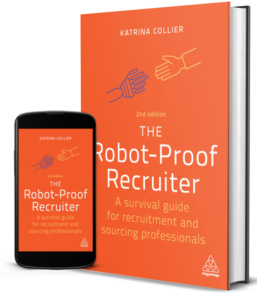Focus on the learning opportunity as a Mentor-Mentee
This week on the show our guest is Charlotte Mummery. Mentoring guru and passionate about people, we invited Charlotte to talk to us about the Mentor-Mentee relationship and share her own extensive experience. She reflected that her
“Mentoring relationships have had quite different experiences based on the person, the time, the subject. A lot of people within the talent acquisition sphere come wanting to have an exposure to a particular specialism or subject within TA”.
Charlotte started her career in recruitment with Accenture as a Graduate Recruitment Administrator; “my ten weeks at minimum wage turned into eight and half years – and the rest is history!”. Fast-forward to the present day, she has now worked for brands such as BP, GSK and Nestle and she is now Regional TA Lead at Siemens Digital Industries for their EMEA region.
As Charlotte is in a lead role at present, we open by discussing leadership mentoring; “once you’re in a leadership role, you often find yourself mentoring about leadership” and it’s valuable as “you need that mentoring relationship where it’s a really safe space for you to say, I went and acquired this skill and now I need to practice this on a live person’”.
Expanding the conversation to include mentoring people at different operational levels,
“It’s good if you are sitting in a leadership role where you are sometimes pulled away from keeping your skills fresh and relevant. The Mentor-Mentee learning curve can help you to remind yourself of some of the good fundamentals” you have as a Leader and you get the chance to reflect that back.”
Is mentoring really coaching?
So, what is the difference between mentoring and coaching? To Charlotte, in her experienced opinion, “coaching is helping the person you are coaching to get to the answer themselves by asking the right questions and uncovering their perspective on the situation. Mentoring is, traditionally, sharing your take on skills and expertise”.
For mentees, Charlotte says, “you have to be clear about what capability, skill or practice you are trying to develop and then pick the right person” and “mentees need to put the work in” as identifying the right Mentor is key to a successful relationship. By way of a warning to both Mentor and Mentee, “the contracting part of that relationship means you need to be upfront” and, “as a Mentor, you need to be super honest about whether you can give the person what they are asking (for)” and as a Mentee “you need to follow through with the actions”.
As a final thought on the Mentor-Mentee relationship,
“Good mentor-mentee relationships aren’t improved by having a formal (mentoring) programme in place”, the value of the relationship has to be… have you found the right person to give you the skill or capability.”
If that wasn’t enough, below you’ll hear Charlotte talk about:
- Considering mentees learning styles
- Managing your time as a Mentor and Mentee
- The importance of Mentor-Mentee feedback
- Using a sprint methodology for Mentor-Mentee to measure actions
- Mentoring people from different geographies and cultures
- Mentors – be inspired by your Mentees


